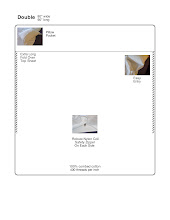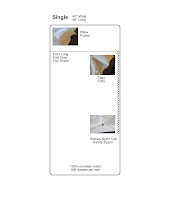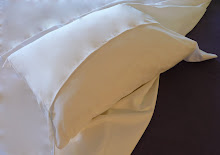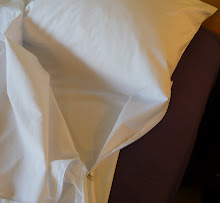Your Child has an allergy. You've spent the years since you found out about the allergy, making sure they weren't exposed to the allergen. Worrying, cleaning, asking 20 questions at every restaurant visit, making sure all their friends and friend's parents knew all about it. Now your child comes home and tells you "I want to sleep at my friends house."
Well, what do you say ? A simple allergy to dust mites will cause a little congestion, maybe an dry patch of skin, but a peanut allergy can be deadly. Even more complicated are multiple food allergies. Do you over protect and not allow the sleep over or do you educate your child and their friends and hope all goes well. Obviously the age of your offspring will dictate some of the reasoning that will go into your decision. How capable your child is to understand the consequences of an allergic reaction, and the amount of trust you put in the parents of the child whose home your child will stay at, are the main factors involved.
You've made peace with your decision and feel your child is educated well enough to be able to make some basic judgements about their own health. You have spoken to the parents and feel they have your child's best interest at heart and will be present to supervise the sleep over. Now you must decide on what items to send with your child to either protect them or alleviate any symptoms or allergic reaction they may have during the stay.
The most obvious items are medications. Whether it's an EPI pen, antihistamines , anti-inflammatories, inhalers etc. these items must be checked and packed in sufficient quantities. Don't take for granted that the household hosting the sleep over has Benadryl or other over the counter meds like ointments or creams. If your child needs any medication, double check, better safe than sorry. As the parent of a highly allergic or asthmatic child , who could die from a reaction which requires medication, you pretty much know this.
But what about allergies which are not life threatening. Millions of kids are allergic to certain proteins in dander from cats and dogs, but also proteins present in the decaying dead bodies of dust mites as well as dust mite fecal matter. Your child may be allergic to these proteins and experience symptoms from mild itching to full blown rhinitis or eczema.These tiny particles are present almost anywhere your child will sleep. Even if the home has no pets, dust mites, which feed on dead human skin cells, are present in carpets, mattresses, sofas and bedding, like blankets and duvets. Using a travel sheet with a small pore size can be very helpful in mitigating the exposure your child might experience. There is no way to completely shield anyone from danders as these particles become airborne easily, but a travel sheet, especially an anti-allergen travel sheet will help greatly. If your child has asthma which is brought on by exposure to danders, try to arrange to have your child sleep elevated from the floor, the further the better. Air quality is better the further from the floor you get. Sleeping with their friends as a group on the carpet might sound like fun but will not help with allergies.
Other than food and animal allergies, there are environmental and chemical allergies. The air and surfaces of the inside of our homes can be more polluted than the outside environment. Household cleaning products and washing detergents can cause many reactions. If your child reacts or has sensitivity to chemicals, it would be a good idea to ask the host to refrain from using these products in the area where the sleepover will occur. Those nasty air fresheners sitting on the dresser or plugged into the wall should be avoided as well. As for washing detergents and bleaches, our need to have our whites " whiter than white " means the chemical residue they leave will be present on the bedding. Again, a travel sheet will help to eliminate exposure to these chemical residues.
Temperature reactions and sun sensitivity are also common, heat rashes and cold hives affect some kids. Make sure your child understands the importance of drinking enough water and wearing UV protection. Cold hives are rarer but still can be a problem, make sure the parents know about your child's cold weather reactions.
Don't be shy. I know parents with allergic kids who pack actual meals to send with their children. Hosting parents might be put off at first, when your child shows up with a lunch box full of food or a travel sheet to put on the bed, but this is why you must communicate with them and explain your predicament. You can either rest easy and enjoy some down time while your child stays over night, or, you can sit around loosing sleep and freaking out every time the phone rings, it's your choice. If a parent whose home your child is sleeping at seems not to understand the health consequences of an allergic reaction, or you get the feeling they think you are paranoid, don't allow the sleep over. In my experience, people who are ignorant to allergies because they, or someone in their family doesn't suffer from them, will not be vigilante.
A good idea is to make a simple checklist of items your child and you will need to enjoy their sleep over. By taking a few minutes to compose this list, you will save your child and yourself, the time and aggravation of having to think of what you need every time they sleep out. Eventually, the child can take over the responsibility of gathering and packing these items, giving them a better understanding of their unique health requirements. Like anything else, it's a learning curve for your child as well as yourself and with the right attitude, can be a positive activity you share with your offspring.
Subscribe to:
Post Comments (Atom)









No comments:
Post a Comment